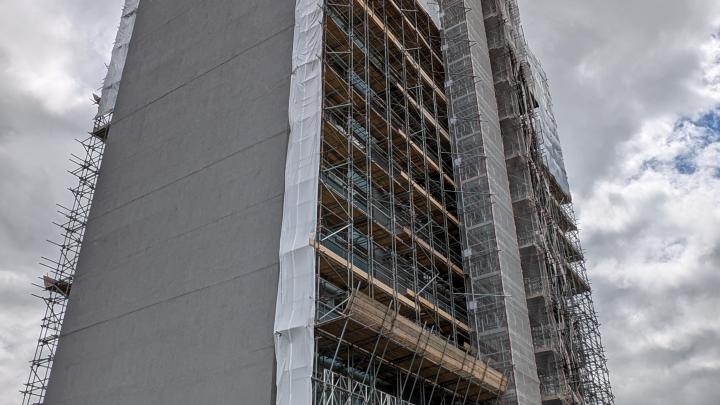A pragmatic approach to Remediation Orders and Remediation Contribution Orders
Posted
Time to read
Since Section 123 of the Building Safety Act 2022 (BSA) came into force more than 3 years ago there have been 16 remediation orders made. All applications for a remediation order have led to an order being made, save for one case (Thanet Lodge) in which the First Tier Tribunal (FTT) dismissed the application because the respondent was not a ‘relevant landlord’ (section 123(3)). Further, a freeholder’s request to extend the time specified in a RO was recently refused: Centrillion Point, discussed briefly here. The FTT in the Empire Square case discussed in this post, Fairfield Athena Limited, The Berkeley Group Holdings plc, and Zampetti, affirms that the approach to decisions involving section 123 should be outcome-based, to achieve the purpose of remediating relevant defects for the safety of leaseholders and disagreeing with comments in the Chocolate Box case that the applicable test is whether it is ‘fair and just’ to make the order.
In Empire Square, the developer, Berkeley, had signed self-remediation terms with the Secretary of State in March 2023. It was argued for the freeholder that Berkeley should undertake the remediation and therefore a remediation order against the freeholder would not be fair and just. Further, facing the possibility of a remediation order being made against it the freeholder applied for a remediation contribution order (RCO) against Berkeley. The claims were heard together. The FTT made both a remediation order and remediation contribution order, but adopted ‘a novel approach’ of suspending both as this was most likely to support remediation being achieved in the shortest possible period.
The Remediation Order
Southwark had issued improvement notices in June 2023 requiring the measures to be completed by November 2025 but by the time of the FTT hearing of the RO and RCO applications in April 2025, the freeholder had not begun to fix the most serious defects identified in the improvement notices. The application for a RO was made by leaseholders who complained that they were stuck waiting in the wings as the freeholder and developer argued about what should be done. Although the developer had signed the self-remediation terms they only required remediation of ‘life-critical fire safety defects’ and would not include remediation of all defects (s 120) defined as relevant under the BSA. Given the lack of progress the leaseholders said (at [74]) that neither the developer nor freeholder had in mind the ‘very real problems of living in an unsafe building causing [the leaseholders] stress and anxiety, with skyrocketing insurance costs, and barely any opportunity to mortgage (or remortgage) or sell while the known issues exist, whether in order to get away from the risk or for some to simply move on with their expanding families and the like.’
The power of the FTT to make a RO is conferred by section 123 of the BSA, together with The Building Safety (Leaseholder Protections) (Information etc.) (England) Regulations 2022. Section 123 itself merely states what a RO is (an order requiring a relevant landlord to remedy specified relevant defects in a specified relevant building, and/or take specified relevant steps, by a specified time). The Regulations again simply say that the FTT ‘may’ make a RO on the application of an interested person. In Empire Square counsel for the freeholder submitted it was not ‘fair and just’ to make a RO against the freeholder as Berkely is responsible for the defects. In the earlier Vista Tower case the FTT said that once it is satisfied that it has jurisdiction the tribunal has both power and discretion to make a RO, and that (at [121]( ‘if the pre-qualification criteria set out in section 123 apply and there are relevant defects we consider that it is likely that the tribunal will make an order, subject to the facts of each case’. Further (at [122]), ‘the jurisdiction should be … practically focussed on ensuring the defects are remedied in a responsible fashion’. The FTT in Empire Square eschewed the adoption of a test, such as ‘just and equitable’ or ‘balance of prejudice’, to guide discretion. Although it noted that lawyers like ‘such things’ section 123 has no such tests: the ‘Act is solution focussed rather than blame focussed’ and a purposive approach must be taken to achieve remediation of the relevant defects in the building for the safety of the leaseholders ([85]).

Image by Cyton Photography.
The fact that Berkeley has signed the self-remediation terms did not fetter the tribunal’s discretion. Here, some of the relevant defects were known about 14 years earlier yet there are still no remediation plans. The existence of the improvement notices, and Southwark’s powers to enforce them, did not give a sufficient guarantee to the leaseholders that the building will be made safe as soon as possible. The freeholder and developer remained unable ‘to resolve between them the standard to which remediation will be required to be made’. The FTT noted that the self-remediation terms, with reference to ‘tolerable’ risks, bear little relationship to the higher standard of remedying relevant defects in the BSA. Indeed, ‘protection of the leaseholders is simply being forgotten in Berkeley’s rigid insistence it will do no more than the SRTs [self-remediation terms] require’. ([219]). The standard of remediation should instead be ‘in compliance with the Building Regulations applicable at the time the works are carried out, so that the relevant defects no longer exist and such that the works achieve approval by the Building Safety Regulator’. ([228])
The FTT noted that if the freeholder had to do the work, rather than the developer, it would take longer and cost more. But the substantial delays, and the failure of the freeholder and developer to agree even the scope of the works, meant that making an order was more likely to result in progress.
The Remediation Contribution Order
Approaching the question of whether to make a RCO in favour of the freeholder the FTT again paid heed to the goals of the Act: that buildings should be ‘remediated as quickly as possible, and that those not responsible for the defects that require remediation do not pay for it’. The statutory test is whether it is ‘just and equitable’ to make an order. On the facts of Empire Square the FTT say it is neither fair nor just to leaseholders or the freeholder to have to pay for developer defects and associated costs. What is important here is that the works must begin as soon as possible and to the relevant standard. If the developer is only willing to do the works required under the Self-Remediation terms then the freeholder needs funds to do the works to the higher BSA required standard. As with other RCO cases, the FTT adopts the language of the waterfall of liability, which has the developer at the top. The RCO made includes costs for the waking watch, experts, and management costs (with sums to be assessed at the end of remediation if not agreed). In addition, the FTT held it has jurisdiction to include within the RCO the legal costs of enforcing the statutory obligations of the freeholder and developer through the FTT, noting that ‘costs’ are undefined in section 124(2). It does not matter that they are not expressly referred to in section 124(2A) - the list there being one of particular costs among others.
The Timetable
The RCO made required Berkely to make immediate payment of waking watch and expert costs incurred to date, with monthly payments for ongoing waking watch costs. Legal and management costs are to be assessed.

Image by Pixaby.
The RCO also includes immediately payable costs (£9,687,500) for the relevant defects but this aspect was suspended on various terms, to include Berkeley providing regular updates to the leaseholders, and commencing the remediation works in accordance with the specified timetable. The RO requires the freeholder to complete remediation by 5 March 2030. This too was suspended on certain conditions, including regular updates to leaseholders (in the form specified) and compliance with reasonable requests from Berkeley to enable it to do the works.
The suspension of the two orders is again pragmatic. It recognises that the developer is in the best position to get on with the work at speed and gives the developer the chance to get going on the work itself rather than to end up paying under the RCO (which will reflect that fact that the rates that the freeholder is likely to have to pay with be less favourable).
Key takeaways
The Empire Square case is the first in which the FTT had to consider the grant of a RO when there is also a developer on the hook under the self-remediation contract, and a related RCO application. It recognises the higher standard of works required under the BSA and makes clear that the RO will ensure that remediation is to the standard required by the Building Regulations at the time of the works, to ensure that it will get Building Safety Regulator approval. Suspending both the RCO and the RO is designed to get the work done as quickly as possible, incentivising the developer to do the work itself rather than pay through the RCO. The case also emphasises that the FTT has an unfettered discretion when considering a RO, but that the key goal is to make the building safe as quickly as possible. It is also helpful to have confirmed that litigation costs can be included within an RCO.
Share
YOU MAY ALSO BE INTERESTED IN



